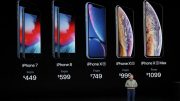- More by Michael Al-Said
Standards-essential patents are the ones so important that everyone in an industry needs to license them, turning major innovations into royalty goldmines for their inventors
Al-Sahawat Times | Ethical Global News from Oman and UAE | Donate HERE
Advertisement – Advertise here from OMR 100 / $275 USD
Following the sudden and very public firing of the head the British military for allegedly leaking security secrets that showed the UK was using or planning to use China based Huawei for the UK’s digital infrastructure. The world saw how powerful Chinese technology was and understood the US bans on Huawei a little more clearly.
Standards-essential patents are the ones so important that everyone in an industry needs to license them, turning major innovations into royalty goldmines for their inventors.
If the latest research from patent analytics firm IPlytics (via Nikkei) is correct, China’s share of 5G standard-essential patent filings has grown sharply from the 4G era, and could enable Chinese companies to earn a third of all 5G patent revenues — even if the companies are banned from selling products in countries where their patents are being used. (So Trump’s Huawei ban is looking pretty pointless at this stage).
According to IPlytics, companies in China have applied for roughly 34% of the world’s major 5G patents as of March 2019, compared with South Korea’s 25%, and 14% each for the United States and Finland. Sweden stood at nearly 8%, and Japan at almost 5%, while Taiwan, Canada, Italy each hold under 1% shares.
Largest players in 5G technology:
- CHINA | 34%
- South Korea | 25%
- FINLAND | 14%
- USA | 14%
- SWEDEN | 8%
- JAPAN | 5%
- TAIWAN | 1%
- ITALY | 1%
- CANADA | 1%
It’s worth noting that this measurement process isn’t perfect, as it relies on the firm’s analysis of a global database of 94 million patent and standard documents, not final issued patents. Using keyword searches, it identified around 74,500 key 5G patents in that pool, with the automotive sector strongly leading the way. Over several years of filings, 5G internet of things and smart energy patents have been modestly on the rise, while smart factory patents have remained small but solid.
Also interesting: China’s share of 5G patents is around 50% higher than its 4G share, where it was almost identical to South Korea — each had roughly 22% of global patents.
While South Korean, Finnish, and Swedish companies have slightly increased their relative percentages of patent filings in the 5G era, the U.S., Japan, and other countries have all fallen at least a little behind their 4G paces.
As judged by individual company filings, the big winner of the 5G generation could be China’s Huawei, which holds over 15% of the world’s 5G patents, while Finland’s Nokia has nearly 14%. Korea’s Samsung is just under 13%, with key rival LG at over 12%.
This shows that China does not rely on one company, Finland relies exclusively on Nokia and South Korea almost exclusively on Samsung and LG. Sweden also exclusively relies on Ericsson.
The top US company, Qualcomm, has just over 8% of the standard essential 5G patent filings, roughly equivalent to Sweden’s Ericsson, but behind the 11.7% share of China’s ZTE. Intel holds over a 5% share, with a variety of Chinese and Japanese innovators grabbing smaller pieces of the 5G pie.
Japan and China with multiple companies sharing the stakes make them the two most stable countries for 5G dominance not at risk of total removal form the 5G map should just one or two companies fall or decide to not play nicely.
The value of these patents is considerable. Just yesterday, Qualcomm said that it will receive between $4.5 and $4.7 billion in back payments from Apple alone, representing around two years of missed 4G royalty payments due to their international legal dispute. Qualcomm’s fraction of essential 5G patent filings is only slightly smaller than its 4G holdings, so its annual 5G patent licensing revenues across multiple licensees should easily be in the multiple billions of dollars.
Assuming that the final patent percentages shake out similarly to the filings, many of the earliest 5G pioneers will be handsomely rewarded with patent revenues regardless of whether they’re supplying the specific base stations and chips individual customers are buying. This should enable China’s Huawei and ZTE to make up somewhat for the sales they’ll lose in foreign markets, while giving all of the innovators a guaranteed revenue stream that could be used to discount their individual products for sale to carriers and 5G device customers.
Since you’re here …
… we have a small favour to ask. More people are reading Al-Sahawat Times than ever but advertising revenues across the global media industry are falling fast. And unlike many news organisations, we haven’t put up a total paywall. We want to keep our journalism as open as we can. So you can see why we need to ask for your help. Al-Sahawat Times’ independent, investigative journalism takes a lot of time, money and hard work to produce. But we do it because we believe truly ethical media and an unbias perspective really matters.
“I appreciate there not being a paywall: it is more democratic for the media to be available for all and not a commodity to be purchased by a few. I’m happy to make a contribution so others with less means still have access to information.”
If everyone who reads our reporting, who likes it, helps fund it, the future of ethical media and the futures of our staff and their families would be much more secure. For as little as £1, you can support Al-Sahawat Times and it only takes a minute. Thank you.
This story is available on:
APPLE NEWS | GOOGLE NEWS | AL-SAHAWAT TIMES
Talk to a journalist
Email: NewsDesk@alsahawat.com
Web: alsahawat.com
Follow Al-Sahawat Times
?Read it on FLIPBOARD
Views: 1






